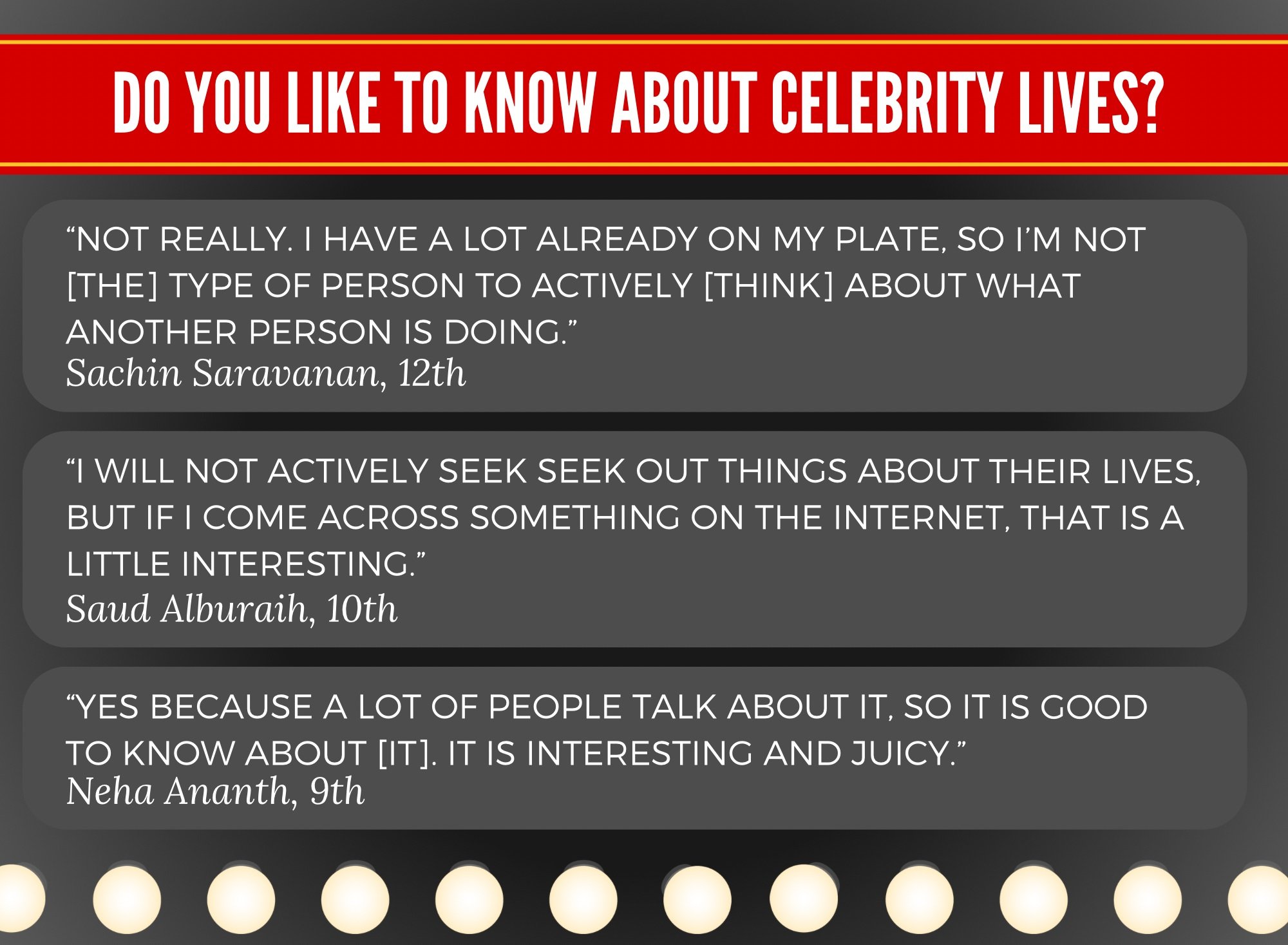Interacting or Interfering?
Lindsay Johnson | april 8, 2024 | The Spring Supplemental
Anyone who watches movies or television, listens to music, or scrolls through social media is most likely familiar with celebrities. These stars are omnipresent in pop culture, so their lives are often picked apart by the media and everyday people. Paparazzi take photos, celebrity gossip is dissected on daytime television and fans post about famous people’s choices on social media. However, there is a line between casually talking about celebrities and trying to control their lives, which is often crossed by the public.
Parasocial relationships are one-sided relationships, often between celebrities and their supporters. Fans enjoy the work the star produces and sometimes begin to obsess over them and their highly publicized lives. Over time, these people feel they are close to the celebrity and may begin to criticize them for their choices.
For example, in 2023, pop singer Taylor Swift was photographed holding hands with Matty Healy, lead singer of pop band The 1975, resulting in various news sources declaring they were dating. Soon after, Swift received backlash from her fans who demanded she break up with him because of his past racist and antisemitic comments. While the morality of Healy’s actions is debatable, fans do not have the right to demand the couple break up. No matter how questionable their decisions are, celebrities are entitled to make them without unwanted input.
While people, including those who are famous, are allowed to be criticized, the problem occurs when the public feels the celebrity must listen to their criticism and respond accordingly. This shows the extent to which fans feel they are friends with their favorite star. For example, if a friend is making a bad choice, it makes sense to express disapproval in hopes they change their decision. However, this is not the case with famous people, who have no obligation to listen to their fans.
n general, people love to be privy to the lives of others, especially those who are famous, which is not only further evidence of their parasocial relationships but also a way of reinforcing them. Paparazzi, society’s intrusive photographers, make a career out of taking photos of celebrities and selling them to media publications. This allows fans to see famous people going about their daily activities, encouraging them to feel closer to the star. However, many celebrities have expressed their frustration with their photos, especially those taken of these celebrities’ young children.
For example, actress Blake Lively has expressed her frustration with paparazzi photographing her kids because it scares them. This intrudes on the life of the celebrity and their family and friends, who did not choose to be in the public eye. It is a major invasion of privacy but continues because of the public’s demand to know more about stars, creating a troublesome cycle of parasocial relationships. As fans pry into the lives of stars, they begin to feel closer to them, causing these fans to want to know more about them by looking even deeper into their lives.
Some singer-songwriters describe personal experiences through their art, which makes people feel justified in interfering in their lives. This is not a valid excuse though, because celebrities are entitled to privacy just as civilians are. This privacy has not been granted to Ariana Grande, who has been called a “homewrecker” for dating men who had recently broken up with their previous partners. In response to this, Grande has said in multiple interviews that people have made unfair assumptions about her. The average person does not know all the details of the situation, so they should not draw such extreme conclusions. Some social media users insult Grande based on these accusations, but this digital harassment could easily damage one’s mental health because celebrities, like everyone else, are human and can be emotionally affected.
Though some may argue celebrities choose to have their lives up for criticism by performing for others and posting on social media, this does not justify invading their privacy or being cruel towards them. Everyone deserves a level of peace, away from prying eyes and cruel comments.
Very recently, Catherine, Princess of Wales, has become the topic of internet frenzy. From late December 2023 to mid-March 2024, she was not seen in public, causing people to speculate about her whereabouts. She was expected to be away from her royal duties until after Easter due to abdominal surgery, but many began to create conspiracy theories when her husband canceled a planned event. After the speculation had been going on for some time, Catherine made an official statement sharing that she was diagnosed with cancer and asked for privacy. As she and the royal family were going through a difficult time, they were bombarded by public opinions instead of being able to process the news privately. Catherine’s followers feel they are entitled to know details about her situation, giving further evidence of their parasocial relationships.
Overall, when posting about celebrities or consuming media, people should be mindful of what they are saying. It is easy to fall into the trap of feeling bonded to celebrities, but it is not a two-way connection. There are many examples of fans overstepping the boundaries of celebrities, and many instances of celebrities expressing annoyance with these invasions. Because of this, it is important to remember celebrities are also human and deserve privacy.

